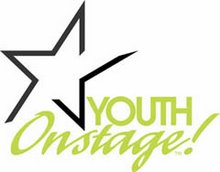Over the last couple of rehearsals, we've covered a lot of ground and we've really started to build on the ideas we've been developing.
On Monday, Stephanie added to our discussion of the American Dream by informing us about the ideas of French sociologist Pierre Bourdieu. She informed about Bourdieu's study of the French educational system, which revealed the difficulty that young people have in moving outside of the "fields" they are born into -- kids from poor backgrounds will typically remain poor and the privileged will remain privileged because they lack the "habitus" (or "know-how") that allows them to move out of those fields. In other words, even though there are opportunities for advancement freely available in our democracies, cultural forces prevent many people from being able to attain them. Bourdieu once wrote that he has consistently discovered "necessity, social constraints, where we would like to see choice and free will."
These limitations, Bourdieu said, are imposed through various forms of "symbolic violence," meaning cultural signs and habits that reinforce structures of social dominance not through outright violence but through sublter, almost subliminal means. Though the term was unfamiliar to the group, we quickly came up with examples.
Amanda pointed out that if you go every day to a school that has metal detectors at the front door, you're naturally going to internalize the idea that you're a potential criminal. Gilbert and Cynthia talked about going to high schools -- like Washington Irving and Erasmus -- that have bad reputations. When everyone tells you that they are the worst schools in the city, you start to doubt that you'll be able to get anything from the education you receive there. Finally, Emily mentioned how her relatives tend to have very limited ideas of what Hispanics can achieve: if a young person in her family said she wanted to be a doctor, her older relatives would likely respond by telling her how hard that would be to achieve rather than supporting her to accomplish it.
Not everyone agreed, of course, that the situation was so deterministic. Marielle, for example, continued to insist that despite all of the obstacles, everyone still did have the freedom of choice to go against all of that and to succeed. Basically, this discussion became another thread in our debate about the American Dream: was it really open to all or has it become more and more exclusionary?
After all that discussion, we tried to perform the debate -- without language. Two groups were formed and created scenes that were meant to show the two contrasting ideas: on the one hand cultural forces limited our opportunities, on the other hand hard work and determination brought success. The performers could only use a few key words: "need" "want" "how" "stop" "yes" "no" "please." Then, on Wednesday, we took the scenes and reduced them even further into silent tableaus, which the whole group worked on to complicate and refine. Eventually the group developed a series of poses expressing the different philosophical positions and we started to move fluidly from one pose to the next. What we're working toward is a "language of gesture" that we can use along with words and music to tell our story.
One of the exciting things about our performed "conversation" is that it can be internally contradictory. The gestures can say one thing while the words or the music can say something else. We're going to keep building on this in Saturday's rehearsal.
Subscribe to:
Post Comments (Atom)

No comments:
Post a Comment